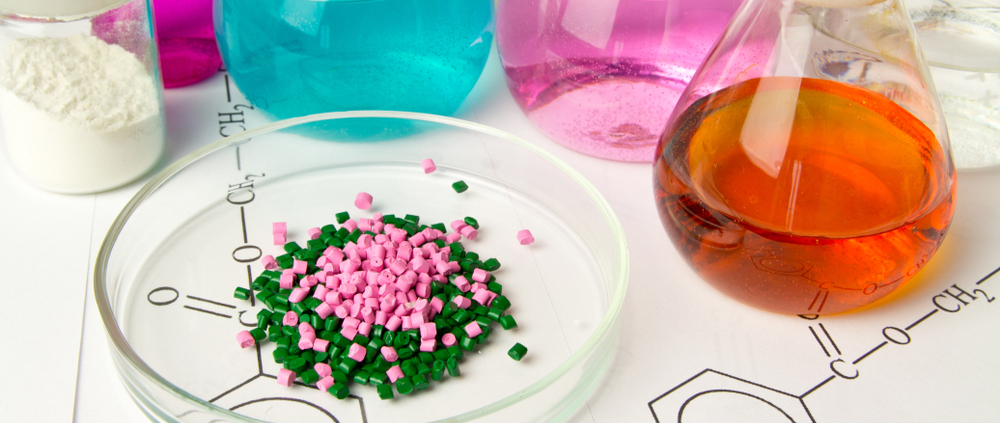Can I Use Polyethylene, Propylene glycol, Ethanol, and Methanol?
Hanafi Fiqh
Answered by Mawlana Ilyas Patel
Question
Is it haram to use products containing ethylene and other chemicals, such as polyethylene, propylene glycol, ethylenediamine, etc., as it is said to be intoxicating?
Would it matter if they are in lip products or absorbed into your skin, and would this affect your wudu?
Also, is it haram to consume propylene glycol, methanol-based chemicals, or ethanol in medication, as it is said to be intoxicating?
Answer
In the Name of Allah, the Most Merciful and Compassionate
Polyethylene
It is permissible to use products that have polyethylene. It is a synthetic resin used in food wraps, shopping bags, etc. However, countries are moving away from using plastic, but many items will be made from it. You can try to buy alternative products if you have intrusive thoughts to stop shaytan from whispering you in this way.
Propylene Glycol
Glycol belongs to the chemical group of alcohol, but it is not a typical alcohol. It is fine to use in pharmaceutical applications.
Thus, using it in lip products, creams, etc., is permissible. However, like many chemical products, they also have long-term effects; one can find ethical and non-chemical products to move away from intrusive thoughts and doubts.
Ethanol
In the Hanafi school, the prohibition of wine (khamr) is restricted to the alcohol derived from grapes and dates. Ethanol, a non-wine, chemically produced alcohol used for the purpose of the medication, as long as it does not intoxicate, would be permissible. [Usmani, Takmila al-Fath al-Muslim; Fiqh al-Buyu’]
Methanol
Methanol is a building block for countless everyday products and applications. Over half of the world’s methanol is used in various chemical applications.
Methanol is used as a feedstock to produce chemicals such as acetic acid and formaldehyde, which are used in products like adhesives, foams, plywood subfloors, solvents, and windshield washer fluid.
In summary, if any of the above ingredients seem to make you fall into intrusive thoughts and doubts, move away from them for a bit or all together and find alternative products. However, one has to follow the majority of Muslims, and when you see righteous scholars and Muslims using these types of products that have the above ingredient, then it should assure you, and you should not worry at all.
Check these links:
Is It Permissible to Use Medicine With Haram Ingredients? – SeekersGuidance
Can We Eat Fruit and Vegetables that Contain Wax and Pesticides? (seekersguidance.org)
A Guide for Consuming Various Meats, Foods, Alcohol, Animal By-Product Ingredients, and Cosmetics – SeekersGuidance
Ethical Superstore: Fair Trade, Organic, Vegan, Plastic Free & Eco Friendly Products
A Reader on OCD and Waswasa (Baseless Misgivings) (seekersguidance.org)
(1) The Application of Islamic Psychotherapy for the Treatment of OCD~Dr. Hooman Keshavarzi – YouTube (video)
The Islamic Workbook for Religious OCD : A Guide for Overcoming Intrusive Thoughts and Compulsions eBook : Keshavarzi, Hooman, Harfi, Samar , Elzamzamy, Khalid, Khan, Fahad, Kaban, Enes: Amazon.co.uk: Kindle Store (book)
Why not begin your search for knowledge by signing up for a course on SeekersAcademy (seekersguidance.org)
I pray this helps with your question.
[Mawlana] Ilyas Patel
Checked and Approved by Shaykh Faraz Rabbani
Mawlana Ilyas Patel is a traditionally-trained scholar who has studied in the UK, India, Pakistan, Syria, Jordan, and Turkey.
He started his early education in the UK. He went on to complete hifz of the Quran in India, then enrolled into an Islamic seminary in the UK, where he studied the secular and Alimiyyah sciences. He then traveled to Karachi, Pakistan.
He has been an Imam in Rep of Ireland for a number of years. He has taught hifz of the Qur’an, Tajwid, Fiqh, and many other Islamic sciences to both children and adults onsite and online extensively in UK and Ireland. He was teaching at a local Islamic seminary for 12 years in the UK, where he was a librarian and a teacher of Islamic sciences.
He currently resides in the UK with his wife. His personal interest is the love of books and gardening.
